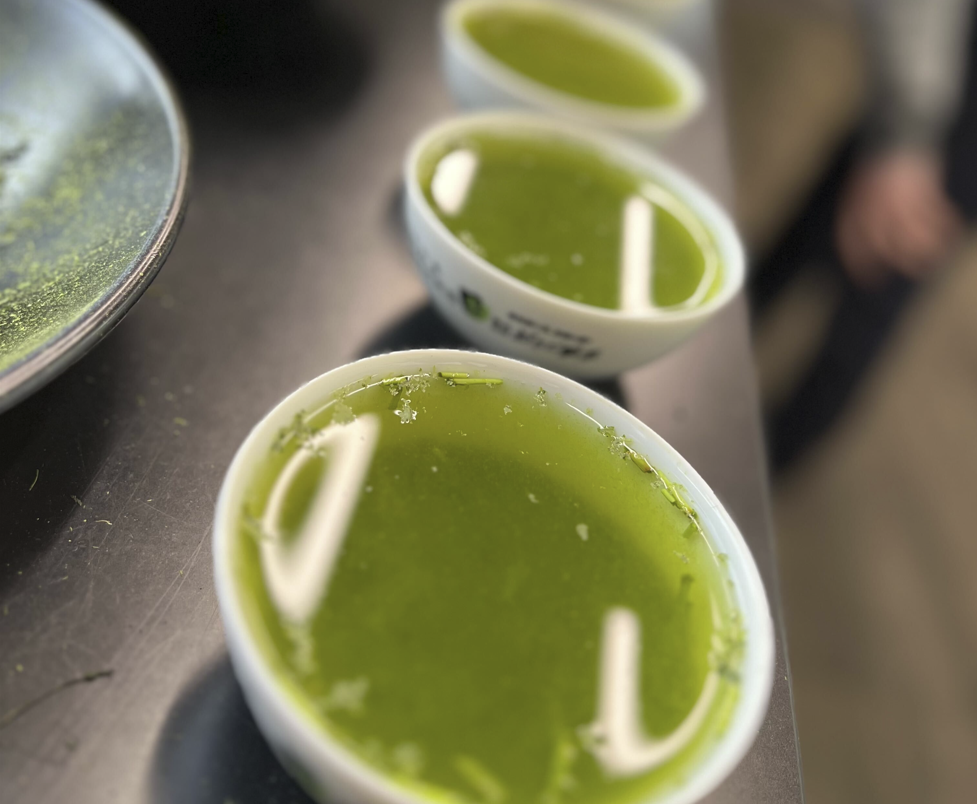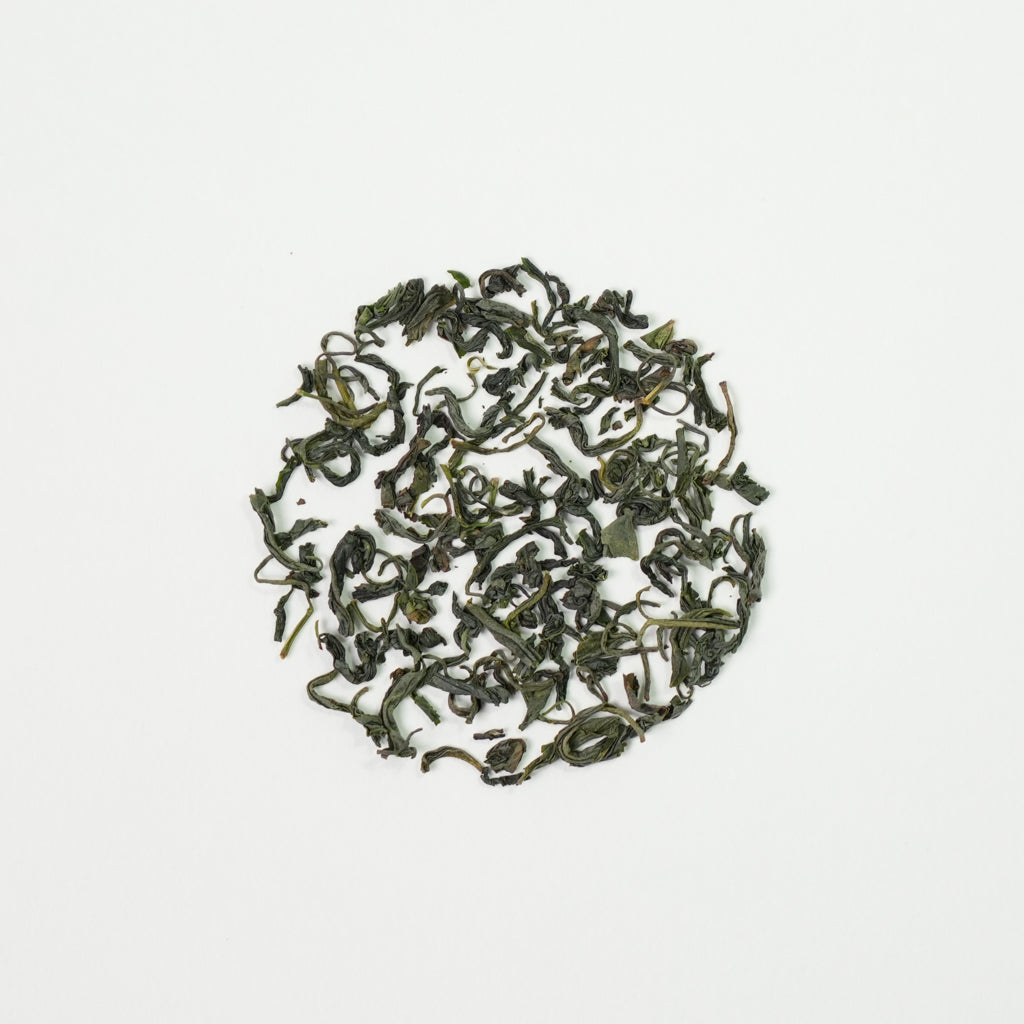
Japanese tea is great taste and good for health


Now, let's talk about the health benefits of Japanese tea. Japanese tea is not only delicious, but it is also good for your health. Here are some reasons why:
- High in antioxidants: Japanese tea is rich in antioxidants, which help to protect your body from damage caused by free radicals. This can reduce the risk of chronic diseases such as cancer, heart disease, and diabetes.
- Boosts metabolism: Drinking Japanese tea can help to boost your metabolism, which can aid in weight loss and weight management.
- Improves brain function: Japanese tea contains caffeine and L-theanine, which can improve brain function and cognitive performance.
- Supports immune system: Japanese tea contains catechins, which have been shown to have anti-inflammatory and immune-boosting effects.
- Promotes relaxation: Japanese tea can help to promote relaxation and reduce stress levels, thanks to its L-theanine content.
Additional details about the taste and health benefits of Japanese tea that might interest you:

Taste:
Umami flavor: Japanese green tea is known for its unique umami flavor, which is a savory taste that is often described as brothy or meaty. This flavor comes from the amino acid L-theanine, which is present in high levels in Japanese green tea.
Astringency: Japanese green tea also has a slightly astringent taste, which can be described as a dry or puckering sensation in the mouth. This astringency is
caused by the tannins present in the tea, which are also responsible for its dark color.
Sweetness: Despite its slightly bitter and astringent taste, Japanese green tea also has a natural sweetness that balances out these flavors. This sweetness comes from the natural sugars and amino acids present in the tea.

Health Benefits:
Weight loss: Japanese green tea contains catechins, which have been shown to help boost metabolism and aid in weight loss. Studies have found that consuming green tea can help to reduce body weight, body fat, and waist circumference.
Heart health: Japanese green tea has been linked to a reduced risk of heart disease, thanks to its high levels of antioxidants and polyphenols. These compounds help to reduce inflammation and lower blood pressure, which can protect the heart and blood vessels.
Brain function: The combination of caffeine and L-theanine in Japanese green tea has been shown to improve brain function, including memory, focus, and mood. This is because caffeine helps to stimulate the brain, while L-theanine promotes relaxation and reduces anxiety.
Immune system: The catechins and other antioxidants in Japanese green tea have been shown to have anti-inflammatory and immune-boosting effects. This can help to protect the body from illness and disease.
Oral health: Drinking Japanese green tea can help to promote oral health by reducing bacteria in the mouth and preventing the formation of plaque and cavities. This is because the catechins in green tea have antibacterial and anti-inflammatory properties.

Overall, Japanese tea is not only a delicious beverage, but it also offers a wide range of health benefits. So the next time you have a chance to try some Japanese tea, be sure to savor its unique flavor and appreciate the ways it can benefit your health!








![[OT-10] MATCHA KOSHUN (20g/0.7oz)](http://osadateajapan.com/cdn/shop/products/OT-10-1-_1.jpg?v=1673502690)
![[OT-04] MATCHA NONO (20g/0.7oz)](http://osadateajapan.com/cdn/shop/products/OT-04-1-_1.jpg?v=1673502659)
![[OT-11] MATCHA OKUMIDORI (20g/0.7oz)](http://osadateajapan.com/cdn/shop/products/OT-11-1-_1.jpg?v=1673502695)
![[OT-09] MATCHA SAEAKARI (20g/0.7oz)](http://osadateajapan.com/cdn/shop/products/OT-09-1-_1.jpg?v=1673502685)
![[OT-01] MATCHA SAMIDORI TEZUMI (20g/0.7oz)](http://osadateajapan.com/cdn/shop/products/OT-01-1-c6043315-f32d-4781-9b40-c902247ddea9-_1.jpg?v=1673502644)
![[OT-02] ORGANIC NISHI MATCHA OKUMIDORI (20g/0.7oz)](http://osadateajapan.com/cdn/shop/products/OT-02-1-_1.jpg?v=1673502648)
![[OT-05] ORGANIC NISHI MATCHA TSUYUHIKARI (20g/0.7oz)](http://osadateajapan.com/cdn/shop/products/OT-05-1-_1.jpg?v=1673502663)
![[OT-16] ORGANIC MATCHA HAMANASU (20g/0.7oz)](http://osadateajapan.com/cdn/shop/products/OT-16-1-_1.jpg?v=1673502719)
![[OT-61] ORGANIC BANCHA (30g/1oz)](http://osadateajapan.com/cdn/shop/products/OT-61-1-_1.jpg?v=1673502855)
![[OT-58] ORGANIC GENMAICHA (30g/1oz)](http://osadateajapan.com/cdn/shop/products/OT-58-1-_1.jpg?v=1673502847)
![[OT-34] ORGANIC GYOKURO OKUMIDORI (30g/1oz)](http://osadateajapan.com/cdn/shop/products/OT-34-1-_1.jpg?v=1673502781)
![[OT-33] ORGANIC GYOKURO SAEMIDORI (30g/1oz)](http://osadateajapan.com/cdn/shop/products/OT-33-1-_1.jpg?v=1673502778)
![[OT-56] ORGANIC MATCHA GENMAICHA (30g/1oz)](http://osadateajapan.com/cdn/shop/products/OT-56-1-_1.jpg?v=1673502843)
![[OT-43] ORGANIC OKUMIDORI KABUSECHA (30g/1oz)](http://osadateajapan.com/cdn/shop/products/OT-43-1-_1.jpg?v=1673502808)
![[OT-40] ORGANIC SENCHA AG TSUYUHIKARI (30g/1oz)](http://osadateajapan.com/cdn/shop/products/OT-40-1-_1.jpg?v=1673502801)
![[OT-39] ORGANIC SENCHA HIRAKI ASAMUSHI (30g/1oz)](http://osadateajapan.com/cdn/shop/products/OT-39-1-_1.jpg?v=1673502798)
![[OT-27] ORGANIC OOLONGTEA GOKOU (30g/1oz)](http://osadateajapan.com/cdn/shop/products/OT-27-1-_1.jpg?v=1673502764)

![[OT-28] ORGANIC OOLONGTEA KURASAWA (30g/1oz)](http://osadateajapan.com/cdn/shop/products/OT-28-1-1-_1.jpg?v=1673502766)

![[OT-31] ORGANIC OOLONGTEA SURUGAWASE SF (30g/1oz)](http://osadateajapan.com/cdn/shop/products/OT-31-1-_1.jpg?v=1673502772)
![[OT-26] ORGANIC OOLONGTEA TSUYUHIKARI (30g/1oz)](http://osadateajapan.com/cdn/shop/products/OT-26-1-_1.jpg?v=1673502762)
![[OT-29] ORGANIC OOLONGTEA ZAIRAI FF (30g/1oz)](http://osadateajapan.com/cdn/shop/products/OT-29-1-_1.jpg?v=1673502768)
![[OT-30] ORGANIC OOLONGTEA ZAIRAI SF (30g/1oz)](http://osadateajapan.com/cdn/shop/products/OT-30-1-_1.jpg?v=1673502770)
![[OT-04] MATCHA NONO (20g/0.7oz)](http://osadateajapan.com/cdn/shop/products/OT-04-5.jpg?v=1671249709)
![[OT-01] MATCHA SAMIDORI TEZUMI (20g/0.7oz)](http://osadateajapan.com/cdn/shop/products/OT-01-5_504055a4-6c55-440d-af84-58b806fd5bf5.jpg?v=1671136783)
![[OT-32] ORGANIC BLACKTEA BENIFUUKI (30g/1oz)](http://osadateajapan.com/cdn/shop/products/OT-32-1-_1.jpg?v=1673502774)
![[OT-32] ORGANIC BLACKTEA BENIFUUKI (30g/1oz)](http://osadateajapan.com/cdn/shop/products/OT-32-5.jpg?v=1671250277)
![[OT-50] ORGANIC KAMAIRICHA FF (30g/1oz)](http://osadateajapan.com/cdn/shop/products/OT-50-1-_1.jpg?v=1673502826)
![[OT-50] ORGANIC KAMAIRICHA FF (30g/1oz)](http://osadateajapan.com/cdn/shop/products/OT-50-5.jpg?v=1671250984)
![[OT-14] ORGANIC MATCHA KAKITSUBATA (20g/0.7oz)](http://osadateajapan.com/cdn/shop/products/OT-14-1-_1.jpg?v=1673502708)
![[OT-14] ORGANIC MATCHA KAKITSUBATA (20g/0.7oz)](http://osadateajapan.com/cdn/shop/products/OT-14-5.jpg?v=1671249965)
![[OT-07] ORGANIC MATCHA KOIAI (20g/0.7oz)](http://osadateajapan.com/cdn/shop/products/OT-07-1-_1.jpg?v=1673502675)
![[OT-07] ORGANIC MATCHA KOIAI (20g/0.7oz)](http://osadateajapan.com/cdn/shop/products/OT-07-5.jpg?v=1671249758)
![[OT-27] ORGANIC OOLONGTEA GOKOU (30g/1oz)](http://osadateajapan.com/cdn/shop/products/OT-27-5.jpg?v=1671250166)
